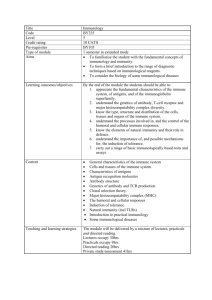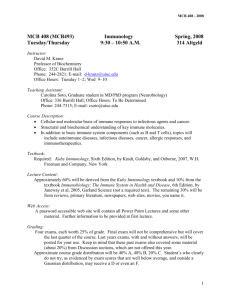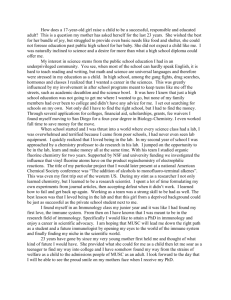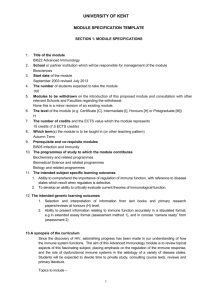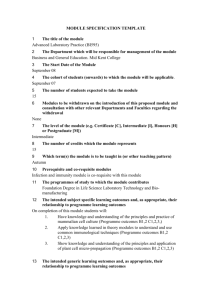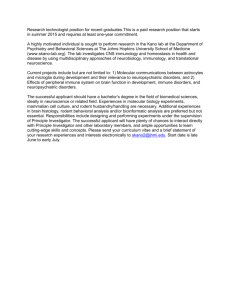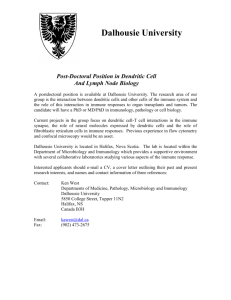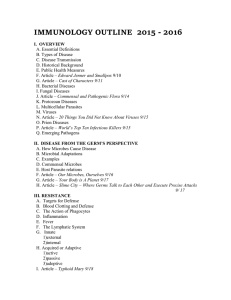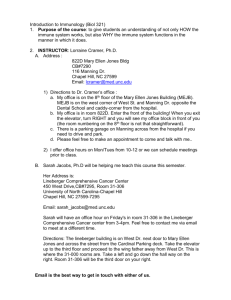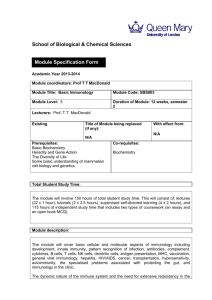ADVANCED IMMUNOLOGY
advertisement
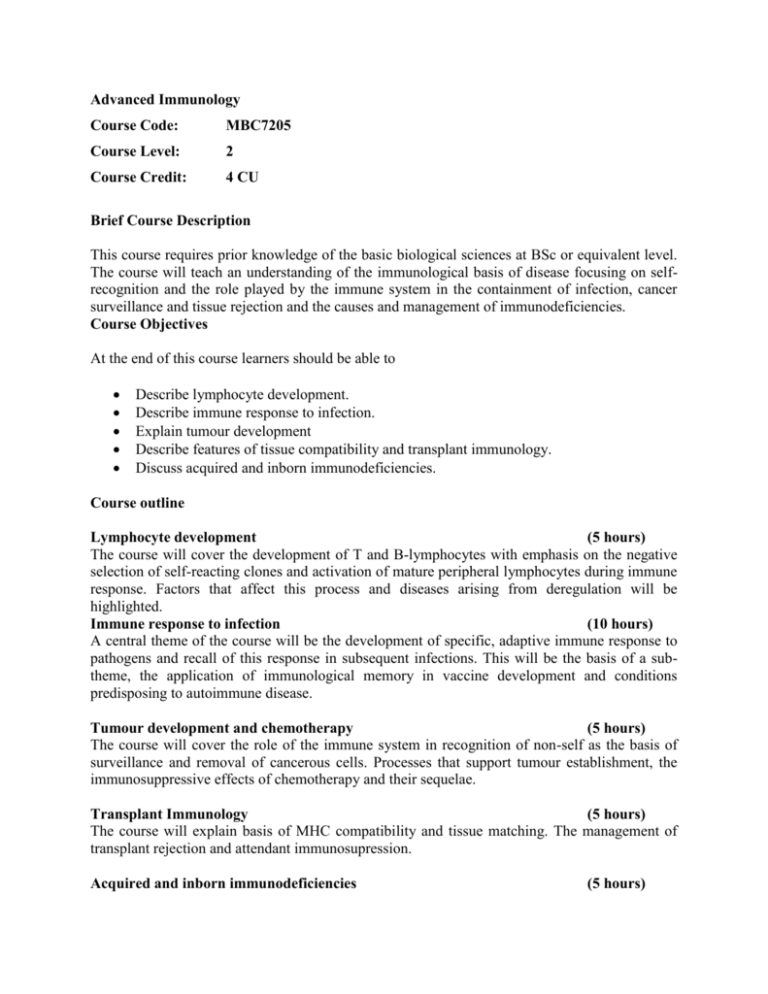
Advanced Immunology Course Code: MBC7205 Course Level: 2 Course Credit: 4 CU Brief Course Description This course requires prior knowledge of the basic biological sciences at BSc or equivalent level. The course will teach an understanding of the immunological basis of disease focusing on selfrecognition and the role played by the immune system in the containment of infection, cancer surveillance and tissue rejection and the causes and management of immunodeficiencies. Course Objectives At the end of this course learners should be able to Describe lymphocyte development. Describe immune response to infection. Explain tumour development Describe features of tissue compatibility and transplant immunology. Discuss acquired and inborn immunodeficiencies. Course outline Lymphocyte development (5 hours) The course will cover the development of T and B-lymphocytes with emphasis on the negative selection of self-reacting clones and activation of mature peripheral lymphocytes during immune response. Factors that affect this process and diseases arising from deregulation will be highlighted. Immune response to infection (10 hours) A central theme of the course will be the development of specific, adaptive immune response to pathogens and recall of this response in subsequent infections. This will be the basis of a subtheme, the application of immunological memory in vaccine development and conditions predisposing to autoimmune disease. Tumour development and chemotherapy (5 hours) The course will cover the role of the immune system in recognition of non-self as the basis of surveillance and removal of cancerous cells. Processes that support tumour establishment, the immunosuppressive effects of chemotherapy and their sequelae. Transplant Immunology (5 hours) The course will explain basis of MHC compatibility and tissue matching. The management of transplant rejection and attendant immunosupression. Acquired and inborn immunodeficiencies (5 hours) The basis of inborn immological diseases such as severe combined immunodeficiency (SCID) and the Bruton’s disease will be highlighted. Comparison will be made with the aetiology and management of acquired immunodeficiency such as AIDS. Tutorials (30 hours) Practicals (30 hours) Mode of delivery This course will be taught by using lectures, practicals and coursework assignments and tutorials. Assessment Assessment will be done through coursework assignments and practical reports, which will constitute a progressive score, and end of module examinations. Their contribution to the final grade is shown below: Components Progressive (Practicals and assignments) Test Final examination Total Contribution 20 % 20 % 60 % 100 % . Reading list: 1. Cellular and Molecular Immunology. Abul K Abbas, Andrew H Litchman, Jordan S Pober. WB Saunders. 2. Laboratory Medicine. Test selection and Intepretation. Joan Howanitz, Peter Howanitz. Edited by: P Joane Cornbleet, Ron B Schifman, Lawrence D Petz. Churchill Livingstone.
